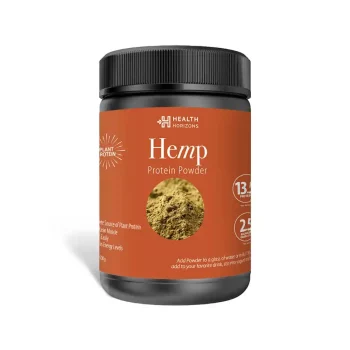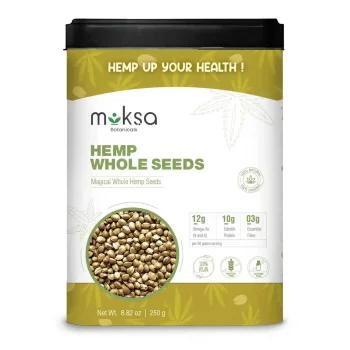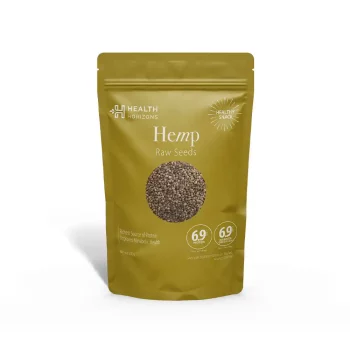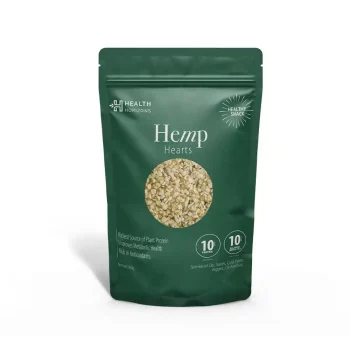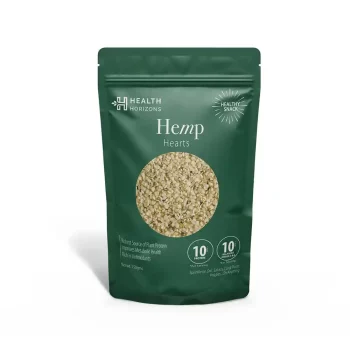We’ve all gotten the ‘You are what you eat’ line at some point in our lives. Both traditional and modern medicines live by this statement. Here’s why it is true.
The food we eat is responsible for how our mind and body function. For the most part, what we eat is totally in our control. So it’s only fair if we are mindful of what we eat and how we eat it. Thankfully, Ayurveda has already gifted modern society the guide to living a nutritious life.
In Ayurveda, easily digestible food is preferred. Everything eaten in excess turns into ‘Ama’, which is the toxic outcome of undigested food.
Here’s a list of Ayurvedic Foods to eat daily for a stronger, healthier body!
6 Ayurvedic Foods to Eat Daily

Seasonal fruits
Seemingly common suggestions, Seasonal fruits are the most simple ayurvedic foods to eat daily. These provide overall nutrition to our bodies (so let’s stop ignoring them). When we consume seasonal fruits, we experience the best flavour a fruit can provide. This way, we don’t have to fear any sort of sketchy gloss coating that markets use these days in order to make the fruits look seasonal.
We also save up on money as fruits are sold for cheaper during their prime seasons. The best part is that the rich colour and taste make it worth the wait. The nutritional value, too, is at its best when fruits are being eaten during respective seasons.
- Summer fruits: Stay hydrated and energetic during summers by eating plenty of fruits. We recommend watermelon, muskmelon, lime, and of course- MANGO!
- Pre-monsoon fruits: Avoid that pre-monsoon uneasiness by eating your fair share of peaches, plums, and cherries.
- Monsoon fruits: We know it’s tempting to not eat pakodas with chai 24×7 during monsoon. But our immunity needs a strong boost during the monsoon season. Pears and Pomegranate should do the trick.
- Winter fruits: Winter brings to us a variety of seasonal fruits that are super nutritious. Oranges, grapes, strawberries, guava are some of the tasty AND healthy fruits that you should definitely add to your winter diet.
According to Ayurveda, we should:
- Have our fruits when they are ripe and fresh.
- Always eat fruits BEFORE a meal instead of DURING or AFTER. This is because they can disrupt the ongoing process of digestion, leading to problems like acidity and indigestion.
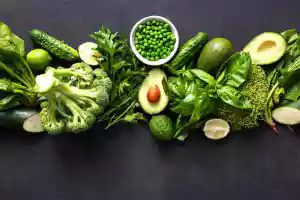
Leafy green vegetables
Remember how Popeye was always ultra enthusiastic about spinach? Well, the reason behind that is because spinach, just like hemp, is a superfood. This title actually extends to all leafy green vegetables, like cabbage, kale, broccoli, coriander leaves, lettuce, etc.
As an example of ayurvedic foods to eat daily, leafy greens can be stir-fried, stewed, steamed, or consumed raw. Even though they are less in calories, leafy green veggies provide ample nutrients. They are rich in vitamins and minerals, especially Vitamin K. They are also high in proteins. Additionally, they have minimal fat and sugar percentages.
Ayurveda suggests the use of these vegetables to lower cholesterol and regulate obesity. They are also extremely beneficial for those suffering from heart diseases. Leafy green vegetables are known to reduce heart-related risks. Some leafy greens like Spinach and kale are also rich in beta-carotene alkaloids, an antioxidant that helps in renewing and rejuvenating our skin.
Dates and figs

The next ones on the list of Ayurvedic foods to eat daily are dates and figs. Both dates and figs can be eaten when they are fresh as well as when they are dried. Once they dry up, the sugar becomes a bit more concentrated, because of which the sugar content and calories go up. However, both are extremely nutritious.
Fresh figs have low sugar content and are low in calories, making them a great addition to your diet. They are also packed with vitamins and minerals, especially copper and Vitamin B6.
Dates are usually found in their dried form and are high in fibre, containing up to 7 grams of fibre per 100 gram serving. Fibre is essential for a healthy digestive system because of which dates are recommended for people who want to better their bowel movements. Dates also serve as an antioxidant and contain flavonoids, carotenoids, and phenolic acids. These antioxidants protect our bodies from diabetes, eye disorders, and inflammation respectively.
Milk

There is a reason why milk has the hearts of the young and the old alike. Cow milk is especially a favourite amongst the masses. Two major types of proteins are derived from milk, one is Casein and the other is Whey protein. Both these protein groups are rich in amino acids and stimulate digestion. The only thing to be mindful of is how we’re consuming milk.
According to Ayurveda, milk should be warmed before consumption as it makes the milk easier to digest. Organic and non-homogenized milk is recommended. If you want to mix something with your milk, try pairing it with turmeric, ginger, and cinnamon to enrich its taste and benefits. Avoid mixing sour, bitter, and pungent foods as they make milk difficult to digest and do more harm than good.
Seeds and Nuts

Though tiny in size, seeds and nuts are rich in good fats, proteins, fibre, and certain vitamins. Almonds, cashew nuts, walnuts, and pistachios are some of the popularly consumed nuts. Since they are packed with macronutrients, nuts make us feel fuller and suppress our desire to eat more.
Eating nuts on the regular promotes weight loss due to the increased energy expenditure that follows a meal that is enriched with nuts.
Recently, seeds like hemp seeds, pumpkin seeds, chia seeds, flax seeds, and sunflower seeds are gaining popularity. The nutritional value of seeds resembles that of nuts and serves the same benefits.
Ginger
Ginger is being used in India for over 4000 years now and is an essential herb in many Indian dishes and beverages. As an ayurvedic food to eat daily, ginger enhances digestion and fights inflammation and nausea. It is also a classic remedy for cold and cough. Patients who catch the flu are given ginger tea for relief.

The book Healing Foods by DK Publishing states that ginger “protects and heals the gut, hastens the movement of food through the gastrointestinal tract, and reduces wind, bloating, and cramps. It also awakens the taste buds and gets digestive juices flowing.”
Conclusion
After learning the health benefits of Ayurvedic foods to eat daily, it is safe to say that food can be soulful and therapeutic. The important thing is to give it the right amount of attention. It is important to keep an account of what we are eating and when we are eating it. A couple more tips to lead an ayurvedic life in these modern times are:
- Chew slowly and properly, without any rush. Really savour and appreciate all that these amazing foods have to offer to us.
- Add lukewarm water to your diet instead of having chilled water.
- Choose cooked food over raw food.
These simple changes play a big role in how our bodies receive and digest the nutrients that are present in our food. It brings more balance to the body, and ultimately to our mind, mood, and life.
Adopt Healthy Living with Hemp
-
Health Horizons Cold Milled Raw Hemp Seeds Powder (Protein) 500gm₹999.00
-
Noigra Hemp Seed Oil (100 ml)₹399.00
-
Product on saleMoksa Raw Hemp Seeds (250g)Original price was: ₹269.00.₹249.00Current price is: ₹249.00.
-
Health Horizons Raw Hemp Seeds, 500gm₹499.00
-
Health Horizons Ayurvedic Sativa Hemp Hearts, 500gm₹1,099.00
-
Hemplanet Dark Chocolate & Coconut – Hemp Granola Bar, 75gms₹160.00
-
Health Horizons Ayurvedic Hemp Sativa Oil 250ml₹799.00
-
Health Horizons Ayurvedic Sativa Hemp Protein Powder 150gm₹299.00
-
Health Horizons Ayurvedic Sativa Hemp Hearts, 150gm₹399.00
-
Februus Organics Hemp Oil- 100 ml₹450.00
-
Health Horizons Ayurvedic Sativa Hemp Protein Powder – Chocolate Flavour (150gms)₹299.00
-
Cure By Design Hemp Hearts (20g)₹90.00








